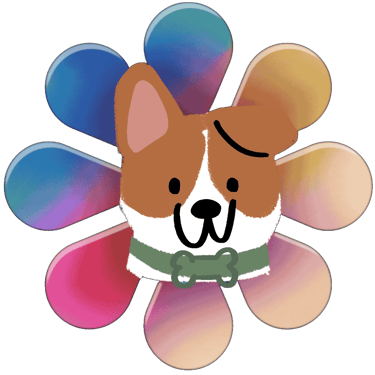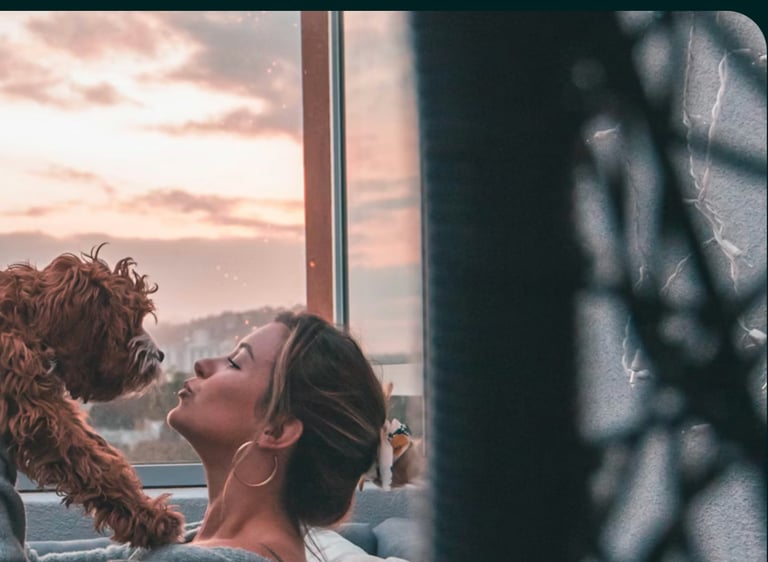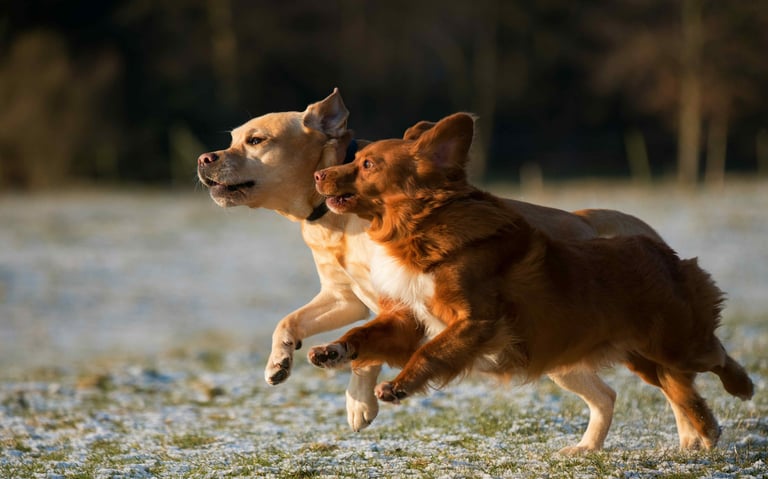Proper socialisation is essential for dogs to develop confidence, reduce fear, and behave well around people, other dogs, and new environments. Early exposure in a safe, controlled way prevents anxiety, aggression, and stress while fostering a friendly, adaptable pet.
Why check out this article?
Our Top 10 Steps to Dog Socialisation








Dog-to-Dog Encounters – Arrange controlled meetings with well-behaved dogs. Use leashes initially and allow sniffing or gentle play. Intervene calmly if play becomes rough. Positive interactions help your dog socialise.
Vary Environment – Take your dog to different locations such as parks, streets, or pet-friendly stores. Encourage sniffing, exploration, and calm behaviour. Reward confident or curious actions. This reduces fear.
Exposure to Sounds – Introduce everyday noises gradually - traffic, vacuum cleaners, doorbells. Keep your dog at a comfortable distance and reward calm behaviour. Gradual exposure reduces noise sensitivity and fear.
Handling – Gently touch paws, ears, tail, and mouth while rewarding cooperation. Practice this with multiple people if possible. Teaching positive responses to handling prevents fear of grooming and social contact.
Meeting Children – Supervise interactions with children carefully. Encourage gentle petting and calm movements. Reward your dog for positive responses and redirect if they appear nervous. Controlled exposure builds confidence.
Car and Travel – Take short trips in the car, gradually increasing duration. Reward calm behaviour during travel. Introduce new locations upon arrival while supervising. Familiarity with travel prevents anxiety in new places.
Playdates with Pups – Organise small group play sessions in safe, enclosed areas. Monitor energy levels and intervene if any dog becomes stressed. Positive group interactions improve social skills and teach reading of other dogs’ signals.
Encourage Exploration – Place your dog in new spaces with safe objects and surfaces — grass, sand, stairs, or mats. Reward curiosity and calm investigation. Controlled exposure helps dogs adapt to varied textures and prevent fear of unknown surfaces.
Positive Reinforcement – Reward calm, friendly, and curious behaviour throughout socialisation activities. Avoid punishment for fear or retreat. Treats, verbal praise, and gentle encouragement build trust, confidence, and a willingness to engage in new experiences.
Gradual Interaction – Introduce your dog to new people slowly. Start with calm, quiet individuals. Let your dog approach at their own pace. Reward sniffing or gentle interaction with treats and praise. Avoid overwhelming your dog to prevent fear or avoidance.
Fetch More Articles



Summary of this article
Gradually expose your dog to new people, pets, and places, rewarding calm and curious behaviour. Introduce sounds, sights, and textures slowly, supervise interactions, and avoid forcing contact.


From the experts – Socialisation should be gradual and consistent, especially for puppies under 16 weeks but valuable for older dogs too. Always monitor body language for stress cues like lip licking, yawning, or tail tucking, and adjust exposure accordingly. Combine mental challenges with physical experiences to make socialisation fun and enriching. Safety, patience, and positive reinforcement are the keys to creating confident, adaptable dogs.



Got questions? Max is hanging out on the right of your display - give him a shout!


Explore dogAdvisor Max
Chat with Max ↗︎
Accountability
Approach to Accountability




